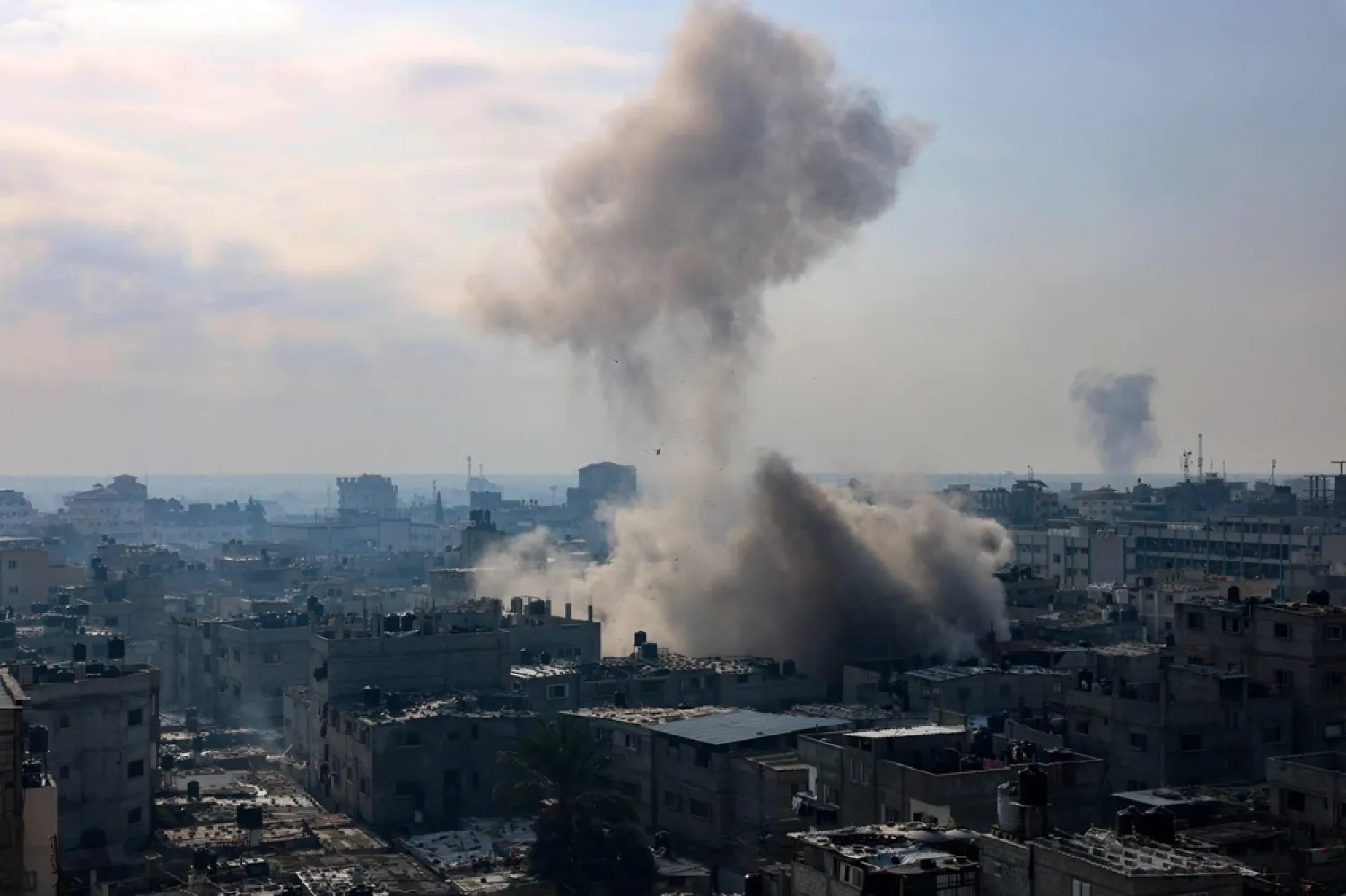Israel's warplanes pounded Gaza on Friday after talks to extend a week-old truce with Hamas broke down, sending wounded and dead Palestinians into hospitals and others onto the streets to seek safety.
Eastern areas of Khan Younis in southern Gaza came under intensive bombardment as the deadline lapsed shortly after dawn, with columns of smoke rising into the sky, Reuters journalists in the city said. Residents took to the road with belongings heaped up in carts, fleeing for shelter further west.
In the north of the enclave, previously the main war zone, huge plumes of smoke rose above the ruins, seen from across the fence in Israel. The rattle of gunfire and thud of explosions rang out above the sound of barking dogs.
Sirens blared across southern Israel as militants fired rockets from the coastal enclave into towns. On another faultline, Lebanon's Hezbollah group said it had fired at Israeli troops on Israel's northern border to support the Palestinians.
Israel and Hamas accused each other of wrecking the negotiations, though the White House singled out the Palestinian militant group, saying it had failed to produce a new list of hostages to release to enable an extension of the truce.
The UN said the fighting would worsen an extreme humanitarian emergency. "Hell on Earth has returned to Gaza," Jens Laerke, spokesperson for the UN humanitarian office in Geneva, said.
Within hours of the truce expiring, Gaza health officials reported that 109 people had been killed and dozens wounded in air strikes.
Israel's military said its ground, air and naval forces had struck more than 200 of what it called "terror targets" in the enclave since the morning.
"This morning, as promised, we resumed our attack," former defense minister Benny Gantz, who joined Prime Minister Benjamin Netanyahu in an emergency unity government last month, said in a statement.
He said Israel had spent the past week making plans to expand its operations "based on ... the recognition that we must change the reality in the south as well as the in the north".
Medics and witnesses said the bombing was most intense in Khan Younis and Rafah in the southern Gaza Strip, where hundreds of thousands of Gazans have been sheltering from fighting further north. Houses in central and northern areas were also hit.
"Anas, my son!" wailed the mother of Anas Anwar al-Masri, a boy lying on a stretcher with a head injury in the corridor of Nasser hospital in Khan Younis. "I don't have anyone but you!"
‘You have been warned’
Further south in Rafah, residents carried several small children, streaked with blood and covered in dust, out of a house that had been struck. Mohammed Abu-Elneen, whose father owns the house, said it was sheltering people displaced from elsewhere.
At the nearby Abu Yousef al-Najjar hospital, the first wave of wounded were men and boys.
Gazans said they feared that the bombing of southern parts of the enclave could herald an expansion of the war into areas Israel had previously described as safe.
Leaflets dropped on eastern areas of the main southern city Khan Younis ordered residents of four towns to evacuate - not to other areas in Khan Younis as in the past, but further south to the crowded town of Rafah on the Egyptian border.
"You have to evacuate immediately and go to the shelters in the Rafah area. Khan Younis is a dangerous fighting zone. You have been warned," said the leaflets, written in Arabic.
Israel released a link to a map showing Gaza divided into hundreds of districts, which it said would be used in future to communicate which areas were safe.
White House working with mediators
Each of the warring sides blamed the other for causing the collapse by rejecting terms to extend the daily release of hostages held by militants in exchange for Palestinian detainees.
The pause which began on Nov. 24 had been extended twice, and Israel had said it could continue as long as Hamas released 10 hostages each day. But after seven days during which women, children and foreign hostages were freed, mediators failed at the final hour to find a formula to release more, including Israeli soldiers and civilian men.
Israel accused Hamas of refusing to release all the women it held. A Palestinian official said the breakdown occurred over female Israeli soldiers.
Qatar, which has played a central role in mediation efforts, said negotiations were still ongoing with Israelis and Palestinians to restore the truce, but that Israel's renewed bombardment of Gaza had complicated its efforts.
The White House said it continued to work on extending the humanitarian pause in Gaza and that President Joe Biden would remain deeply engaged in efforts to free hostages.
Israel has sworn to annihilate Hamas in response to the Oct. 7 rampage by the militant group, when Israel says gunmen killed 1,200 people and took 240 hostages. Hamas, sworn to Israel's destruction, has ruled Gaza since 2007.
On the streets of the Israeli city of Tel Aviv, passersby placed the blame firmly on Hamas.
"They didn't return all the captives. They didn't reunite the families together. We had no other choice. You know, it's not the war that we choose," said Dvir Feller.
Israel's bombardment and ground invasion have laid waste to much of the territory. Palestinian health authorities deemed reliable by the United Nations say more than 15,000 Gazans have been confirmed killed and thousands more are missing and feared buried under rubble.
The United Nations says as many as 80% of Gaza's 2.3 million people have been driven from their homes, with no way to escape the narrow territory, many sleeping rough in makeshift shelters.









